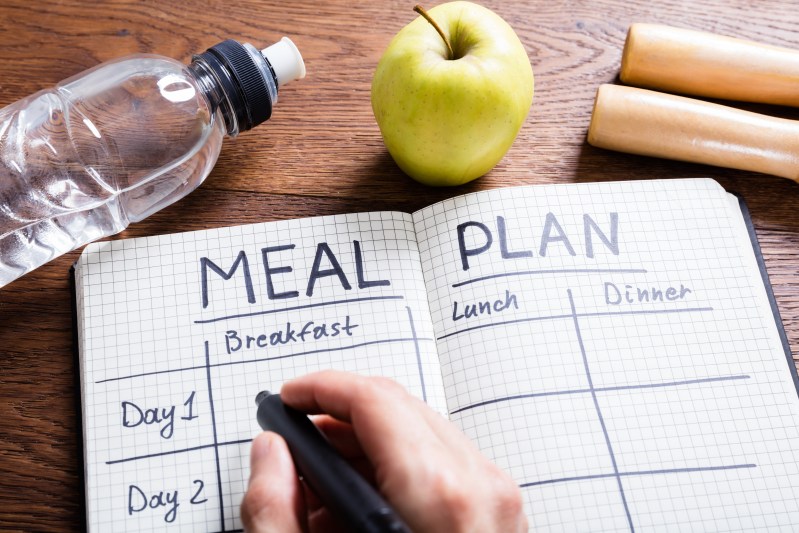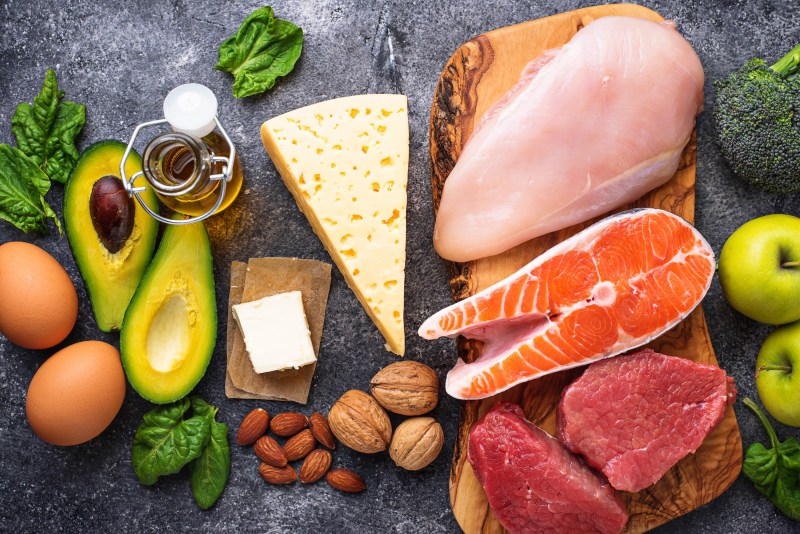Healthy eating is important for reaching your fitness goals and maintaining overall well-being. Without a balanced diet, any progress made in the gym can be undone.
A healthy diet supplies the body with vitamins, minerals, complex carbs, good fats, and plenty of protein for muscle growth and repair. It also complements physical activity and enhances the results of fitness training. So, by adopting a healthy eating plan and making mindful food choices, you can fuel your body with the nutrients it needs to stay energized and strong.
Various methods can be applied to help reach fitness goals diet-wise, and there are also many theories on how to eat healthily. With this in mind, here are nine effective methods to apply to your diet to help you achieve your
Plan your meals

Creating a meal plan ensures that you have various nutritional options available. This can prevent food boredom, reducing the temptation to reach for unhealthy foods and snacks.
The most successful meal plans include a variety of healthy foods and offer something different daily; this prevents the plan from becoming monotonous. If this does become the main problem, then the occasional treat can be added as a reward for eating well or as an incentive to hit healthy eating targets.
Planning meals can also help supply the body with nutrients before and after exercise. Days dominated by resistance training should end with a protein-heavy meal to aid muscle repair and growth. A complex carb lunch or breakfast can supply the fuel needed to get through such sessions on a cardio day involving running, jogging, or time on a treadmill.
Only complex carbohydrate meals should be eaten as they tend to be healthier and release energy slowly. Avoid quick-fix simple carbs that spike blood sugar levels rapidly. In response, the body produces insulin to bring blood glucose levels back down, which can leave you feeling hungry more often.
Slowly released energy from complex carbs does not require the body to produce large amounts of insulin to control sudden glucose spikes — the result is that you feel fuller for longer and have a consistent energy supply to tap into when needed.
Practice portion control

Monitoring serving sizes helps manage caloric intake and prevents overeating, supporting weight loss goals.
Overeating should be avoided, even with healthy food options. Being too full can affect the type and amount of exercise performed before a training session commences.
Incorporate whole foods

Whole foods include fruits, vegetables, grains, seeds, beans, and lentils. Most remain in their natural state with little processing. Whole foods tend to be packed with vitamins, minerals, and antioxidants and should make up a large percentage of a healthy diet.
Stay hydrated

Hydration is vital because every cell in the body needs water to function and survive. Drinking according to climate and activity levels so lost fluids and electrolytes can be replaced is advised. Consuming plenty of mineral water is the healthiest way to stay hydrated.
Dehydration can cause fatigue, headaches, and nausea. These symptoms can affect exercise performance levels, and good hydration planning can prevent their onset.
Read nutrition labels

Understanding food labels enables you to make informed choices and select products suited to your fitness goals. They can make you aware of the nutritional profile of the food you choose to eat.
Furthermore, they can help consumers avoid additives, large amounts of salt and sugar, and even dietary allergens such as lactose and gluten.
Practice mindful eating

Enjoying what you eat in a relaxed atmosphere and savoring the flavors and experience can aid digestion and make you appreciate your food choices.
Prepare meals at home

Cooking at home allows you to control ingredients, cooking methods, and portion sizes, contributing to a healthier diet. This method of food preparation is also best if you want to avoid chemical additives and preservatives.
Snack smart

Choosing nutrient-rich snacks like fruits, nuts, or yogurt provides sustained energy and helps curb unhealthy cravings for junk foods high in simple carbs and saturated fats.
Limit added sugars and unhealthy fats

Reduce the intake of sugary and fatty foods to support weight management, avoid inflammation, and lower the risk of chronic diseases like heart disease and type 2 diabetes. Sugars and unhealthy fats are frequently found in sweets, fast food, and packaged food.
Frequently asked questions

What is the healthiest food to eat every day?
Eating a variety of whole foods and lean protein is the healthiest because it guarantees the intake of vitamins, minerals, antioxidants, complex carbs, and protein. So, lean cuts of meat, legumes, fruits, vegetables, nuts, seeds, and grains should be included.
How do I train myself to eat healthy?
Start by gradually incorporating healthier choices into your diet, setting realistic goals, and slowly removing unhealthy foods — this has a higher success rate than going ‘cold turkey.’
What is a basic healthy diet?
A basic, healthy diet balances macronutrients such as carbohydrates, proteins, and fats. Plenty of fruits, vegetables, whole grains, lean proteins, and adequate hydration support overall health and well-being.




